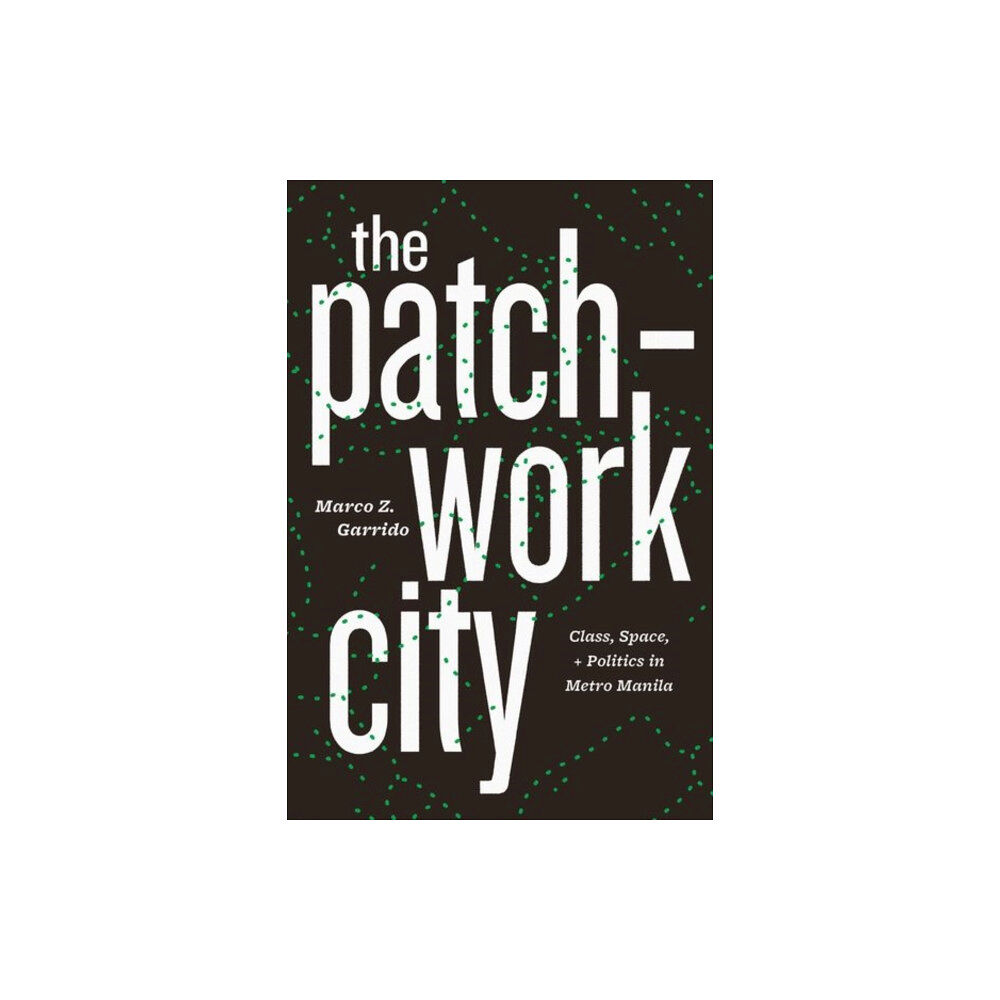- Hem
- Böcker
- Kurslitteratur
- Samhälle & Politik
- The Patchwork City (inbunden, eng)

The Patchwork City (inbunden, eng)
In contemporary Manila, slums and squatter settlements are peppered throughout the city, often pushing right up against the walled enclaves...
369 kr
415 kr
Bara 2 kvar
Skickas inom 2-3 vardagar
- Fri frakt
Fri frakt över 299:-
Snabb leverans
Alltid låga priser
Produktbeskrivning
In contemporary Manila, slums and squatter settlements are peppered throughout the city, often pushing right up against the walled enclaves of the privileged, creating the complex geopolitical pattern of Marco Garrido's "patchwork city." Garrido documents the fragmentation of Manila into a m lange of spaces defined by class, particularly slums and upper- and middle-class enclaves.
He then looks beyond urban fragmentation to delineate its effects on class relations and politics, arguing that the proliferation of these slums and enclaves and their subsequent proximity have intensified class relations. For enclave residents, the proximity of slums is a source of insecurity, compelling them to impose spatial boundaries on slum residents.
For slum residents, the regular imposition of these boundaries creates a pervasive sense of discrimination. Class boundaries then sharpen along the housing divide, and the urban poor and middle class emerge not as labor and capital but as squatters and "villagers," Manila's name for subdivision residents.
Garrido further examines the politicization of this divide with the case of the populist president Joseph Estrada, finding the two sides drawn into contention over not just the right to the city, but the nature of democracy itself. The Patchwork City illuminates how segregation, class relations, and democracy are all intensely connected.
It makes clear, ultimately, that class as a social structure is as indispensable to the study of Manila--and of many other cities of the Global South--as race is to the study of American cities.
He then looks beyond urban fragmentation to delineate its effects on class relations and politics, arguing that the proliferation of these slums and enclaves and their subsequent proximity have intensified class relations. For enclave residents, the proximity of slums is a source of insecurity, compelling them to impose spatial boundaries on slum residents.
For slum residents, the regular imposition of these boundaries creates a pervasive sense of discrimination. Class boundaries then sharpen along the housing divide, and the urban poor and middle class emerge not as labor and capital but as squatters and "villagers," Manila's name for subdivision residents.
Garrido further examines the politicization of this divide with the case of the populist president Joseph Estrada, finding the two sides drawn into contention over not just the right to the city, but the nature of democracy itself. The Patchwork City illuminates how segregation, class relations, and democracy are all intensely connected.
It makes clear, ultimately, that class as a social structure is as indispensable to the study of Manila--and of many other cities of the Global South--as race is to the study of American cities.
| Format | Inbunden |
| Omfång | 288 sidor |
| Språk | Engelska |
| Förlag | The University of Chicago Press |
| Utgivningsdatum | 2019-08-05 |
| ISBN | 9780226643007 |
Specifikation
Böcker
- Inbunden, 288, Engelska, The University of Chicago Press, 2019-08-05, 9780226643007
Leverans
Vi erbjuder flera smidiga leveransalternativ beroende på ditt postnummer, såsom Budbee Box, Early Bird, Instabox och DB Schenker. Vid köp över 299 kr är leveransen kostnadsfri, annars tillkommer en fraktavgift från 29 kr. Välj det alternativ som passar dig bäst för en bekväm leverans.
Betalning
Du kan betala tryggt och enkelt via Avarda med flera alternativ: Swish för snabb betalning, kortbetalning med VISA eller MasterCard, faktura med 30 dagars betalningstid, eller konto för flexibel delbetalning.
Specifikation
Det finns tyvärr inga specifikationer att visa för denna produkt.
